Board of DirectorsThe management and affairs of the Alaska Public Health Association are under the direction of the Board of Directors. The Officers for the organization are the President, President-Elect, Immediate Past President, Affiliate Representative to the APHA Governing Council, Secretary and Treasurer. The President-Elect is elected prior to the annual meeting of the organization. The Secretary and Treasurer are elected from the twelve elective members at the first Board of Directors meeting following the annual meeting. Term of office for the Board Members is three (3) years each. Interested in serving on ALPHA's Board? Apply Here!CUrrent board membersDanielle Reed, Immediate Past President
Term expires: 2027
Julie Cleaton, President
John Laurance, President-Elect 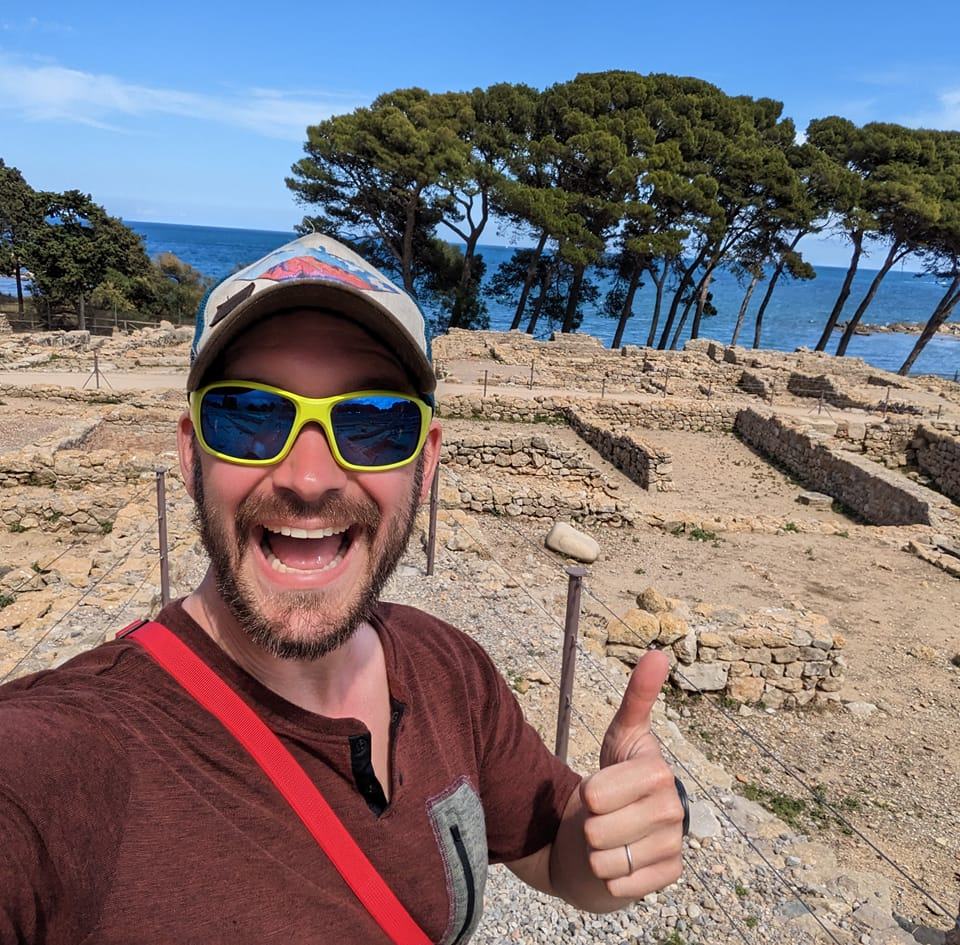
John has worked for the SOA Division of Public Health for 10 years. He was the lead microbiologist and bioterrorism coordinator for the State Public Health Laboratory from 2015-2024, then took on the role of Senior Program Manger for the DPH Special Projects team located in the office of the Director of Public Health which focused on Health Equity, and Workforce Development, and Public Health Infrastructure development from spring of 2024 to the spring of 2025. John recently took on the role of program manager for the Homeless Health Intervention and Prevention team in the Division of Public Health.
Katie Cueva, APHA Representative
Born and raised in Alaska, Katie is happy to be home to skate, ski, hike, and work in public health research and practice. Dr. Cueva is an Assistant Professor of Health Policy at the Center for Behavioral Health Research and Services (CBHRS), within the Institute of Social and Economic Research (ISER) at the University of Alaska Anchorage (UAA), and Associate Faculty with the Center for American Indian Health at the Johns Hopkins Bloomberg School of Public Health. Her research interests include social determinants of health in the circumpolar north, culturally appropriate health promotion, and community-based participatory action research. She currently serves as Alaska’s representative on the governing council of the American Public Health Association (APHA), and on the Council of Affiliates for APHA. She also serves on the executive council of both the American Association for Cancer Education, and of the American Indian, Alaska Native and Native Hawaiian Caucus of the American Public Health Association. Juliana Stephan, Secretary
Gloria Burnett, Director
Jason Johnson Sr., Director
Term expires: 2027
Mariah Seater, Director
Term expires: 2027
George Conway, M.D., Director
Term Expires: 2028
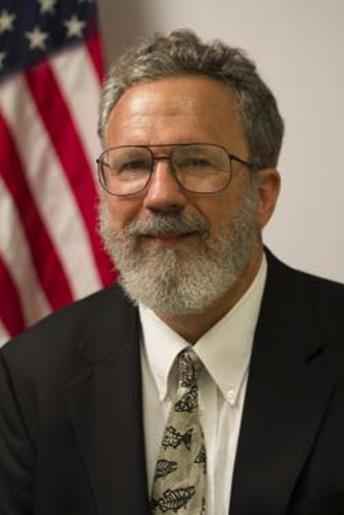 GEORGE A. CONWAY, MD, MPH, DABPM (CAPT, 0-6, USPHS, Ret.) is a physician and epidemiologist known for his work in epidemic response, environmental health, and human performance in extreme environments. Dr. Conway served in various senior level positions with the US Centers for Disease Control and Prevention (CDC) from 1988 to 2016, and has extensive international experience responding to public health threats and emergencies. Dr. Conway worked in Alaska and other Arctic locales for many years, and was President of the International Union for Circumpolar Health (1996-2000). His wide-ranging work on public health issues including disease outbreaks, HIV/AIDS, STDs, health, safety, and environment in the fishing, agriculture, aviation, and oil and gas industries; and internationally on many infectious and environmental hazards, includes over 100 scientific articles, monographs, and book chapters and is often cited. He has been a keynote speaker at many national and international conferences. Dr. Conway holds an M.D. from the University of New Mexico School of Medicine, and a Masters of Public Health from the University of South Carolina. He served 1988-1990 as an Epidemic Intelligence Service Officer, and collaterally as a Federal Aviation Medical Examiner (AME), 1999-2014. He is board-certified in General Preventive Medicine and Public Health GEORGE A. CONWAY, MD, MPH, DABPM (CAPT, 0-6, USPHS, Ret.) is a physician and epidemiologist known for his work in epidemic response, environmental health, and human performance in extreme environments. Dr. Conway served in various senior level positions with the US Centers for Disease Control and Prevention (CDC) from 1988 to 2016, and has extensive international experience responding to public health threats and emergencies. Dr. Conway worked in Alaska and other Arctic locales for many years, and was President of the International Union for Circumpolar Health (1996-2000). His wide-ranging work on public health issues including disease outbreaks, HIV/AIDS, STDs, health, safety, and environment in the fishing, agriculture, aviation, and oil and gas industries; and internationally on many infectious and environmental hazards, includes over 100 scientific articles, monographs, and book chapters and is often cited. He has been a keynote speaker at many national and international conferences. Dr. Conway holds an M.D. from the University of New Mexico School of Medicine, and a Masters of Public Health from the University of South Carolina. He served 1988-1990 as an Epidemic Intelligence Service Officer, and collaterally as a Federal Aviation Medical Examiner (AME), 1999-2014. He is board-certified in General Preventive Medicine and Public HealthSamantha McNelly, MPH, CPH, LMSW, Treasurer
Term Expires: 2028
S
 amantha (Sam) McNelly (she/her), MPH, CPH, LMSW, is a Program Evaluator with the Alaska Native Tribal Health Consortium’s (ANTHC) Wellness and Prevention Department, where she provides evaluation and programmatic support to suicide prevention, domestic violence prevention, and comprehensive cancer control programs. Prior to her current role, Ms. McNelly worked in domestic violence crisis response for seven years, working both in Anchorage’s domestic violence shelter, and for an out-of-state domestic violence crisis line. Sam also worked as a sexual health educator in Alaska for three years, leading the facilitation of peer education programs for high school students, teaching sexual health classes in schools around the state, and facilitating a specialized LGBTQ+ sex education curriculum. Sam is passionate about public health challenges including domestic violence prevention and intervention, suicide prevention and mental health, sexual health and wellness, harm reduction and substance use, and housing and homelessness. Ms. McNelly received her Master of Public Health and Master of Social Work degrees from Washington University in St. Louis, and is Certified in Public Health and a licensed social worker in the State of Alaska. In her free time, Sam serves on the Anchorage Coalition to End Homelessness Prevention and Response System Advisory Council, volunteers for the Northwest Abortion Access Fund, hikes with her over-eager dog, reads as much as possible, beads when she has the patience for it, and skis very poorly on some of Anchorage’s wonderful trails. amantha (Sam) McNelly (she/her), MPH, CPH, LMSW, is a Program Evaluator with the Alaska Native Tribal Health Consortium’s (ANTHC) Wellness and Prevention Department, where she provides evaluation and programmatic support to suicide prevention, domestic violence prevention, and comprehensive cancer control programs. Prior to her current role, Ms. McNelly worked in domestic violence crisis response for seven years, working both in Anchorage’s domestic violence shelter, and for an out-of-state domestic violence crisis line. Sam also worked as a sexual health educator in Alaska for three years, leading the facilitation of peer education programs for high school students, teaching sexual health classes in schools around the state, and facilitating a specialized LGBTQ+ sex education curriculum. Sam is passionate about public health challenges including domestic violence prevention and intervention, suicide prevention and mental health, sexual health and wellness, harm reduction and substance use, and housing and homelessness. Ms. McNelly received her Master of Public Health and Master of Social Work degrees from Washington University in St. Louis, and is Certified in Public Health and a licensed social worker in the State of Alaska. In her free time, Sam serves on the Anchorage Coalition to End Homelessness Prevention and Response System Advisory Council, volunteers for the Northwest Abortion Access Fund, hikes with her over-eager dog, reads as much as possible, beads when she has the patience for it, and skis very poorly on some of Anchorage’s wonderful trails.Eduardo Piqueiras, PhD., M.Sc., Director Term Expires: 2028
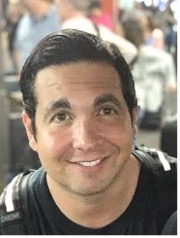 Dr. Eduardo Piqueiras is an assistant professor of Health Sciences at the University of Alaska Anchorage. He is an environmental health researcher working to improve human and environmental health outcomes for vulnerable communities. His research examines the role of infrastructures and urbanization on human health through the application of various research methodologies and data sources, including epidemiological, ethnographic, GIS, and advanced statistical analyses. He is an experienced leader in transdisciplinary and team science research and has collaborated with public, private, and non-private sectors in his work. In addition to his research, Dr. Piqueiras teaches graduate and undergraduate courses in environmental and urban health, biostatistics, and epidemiology. He is excited about the opportunity to contribute more directly to the Alaska Public Health Association and the future of public health in Alaska. Dr. Eduardo Piqueiras is an assistant professor of Health Sciences at the University of Alaska Anchorage. He is an environmental health researcher working to improve human and environmental health outcomes for vulnerable communities. His research examines the role of infrastructures and urbanization on human health through the application of various research methodologies and data sources, including epidemiological, ethnographic, GIS, and advanced statistical analyses. He is an experienced leader in transdisciplinary and team science research and has collaborated with public, private, and non-private sectors in his work. In addition to his research, Dr. Piqueiras teaches graduate and undergraduate courses in environmental and urban health, biostatistics, and epidemiology. He is excited about the opportunity to contribute more directly to the Alaska Public Health Association and the future of public health in Alaska.Mara McKown, MPH, MSW, CPH, Director
Term Expires: 2029
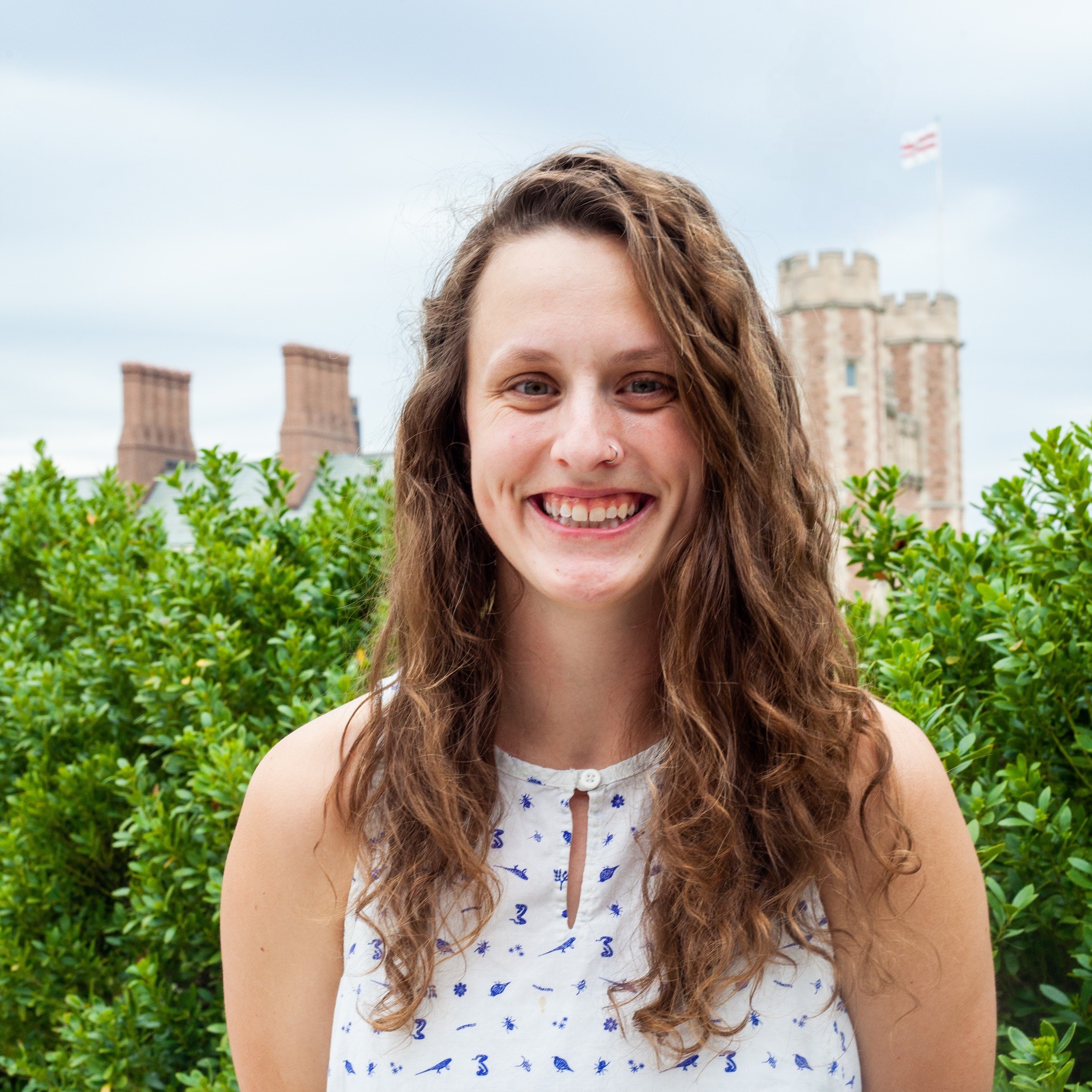 Mara McKown, MPH, MSW, CPH is currently an evaluator and epidemiologist in the State of Alaska’s Section of Chronic Disease Prevention and Health Promotion. Mara also is an adjunct faculty member at Alaska Pacific University teaching a class on epidemiology and research methods for environmental public health and health scientist majors. Before moving to Alaska, Mara received a Master’s of Public Health and a Master’s of Social Work from Washington University in St. Louis. Mara’s public health interests lie in refugee, asylee, and immigrant health, health equity, and the intersection of social, political, and climate forces on community health. During non-work hours, Mara enjoys exploring outside (on skis, ice skates, bike, or by foot), rock climbing, and making art. Mara McKown, MPH, MSW, CPH is currently an evaluator and epidemiologist in the State of Alaska’s Section of Chronic Disease Prevention and Health Promotion. Mara also is an adjunct faculty member at Alaska Pacific University teaching a class on epidemiology and research methods for environmental public health and health scientist majors. Before moving to Alaska, Mara received a Master’s of Public Health and a Master’s of Social Work from Washington University in St. Louis. Mara’s public health interests lie in refugee, asylee, and immigrant health, health equity, and the intersection of social, political, and climate forces on community health. During non-work hours, Mara enjoys exploring outside (on skis, ice skates, bike, or by foot), rock climbing, and making art.
Eliza Ramsey, Director Term Expires: 2029
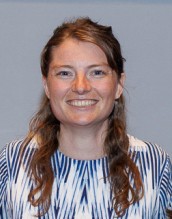 Eliza Ramsey is a data scientist and strategist working on projects across the data lifecycle at the Alaska Department of Health. She completed the CSTE Applied Public Health Informatics Fellowship with the agency and graduated from the University of Washington with an MPH in Epidemiology as well as previously working with other local, state and tribal public health organizations. Based in Anchorage, she appreciates the creativity and connections required to serve the wellbeing of communities across Alaska. Outside of work you can find her somewhere outside!
Lisa Schwarzburg, PhD, M.S, Director
Term Expires: 2029
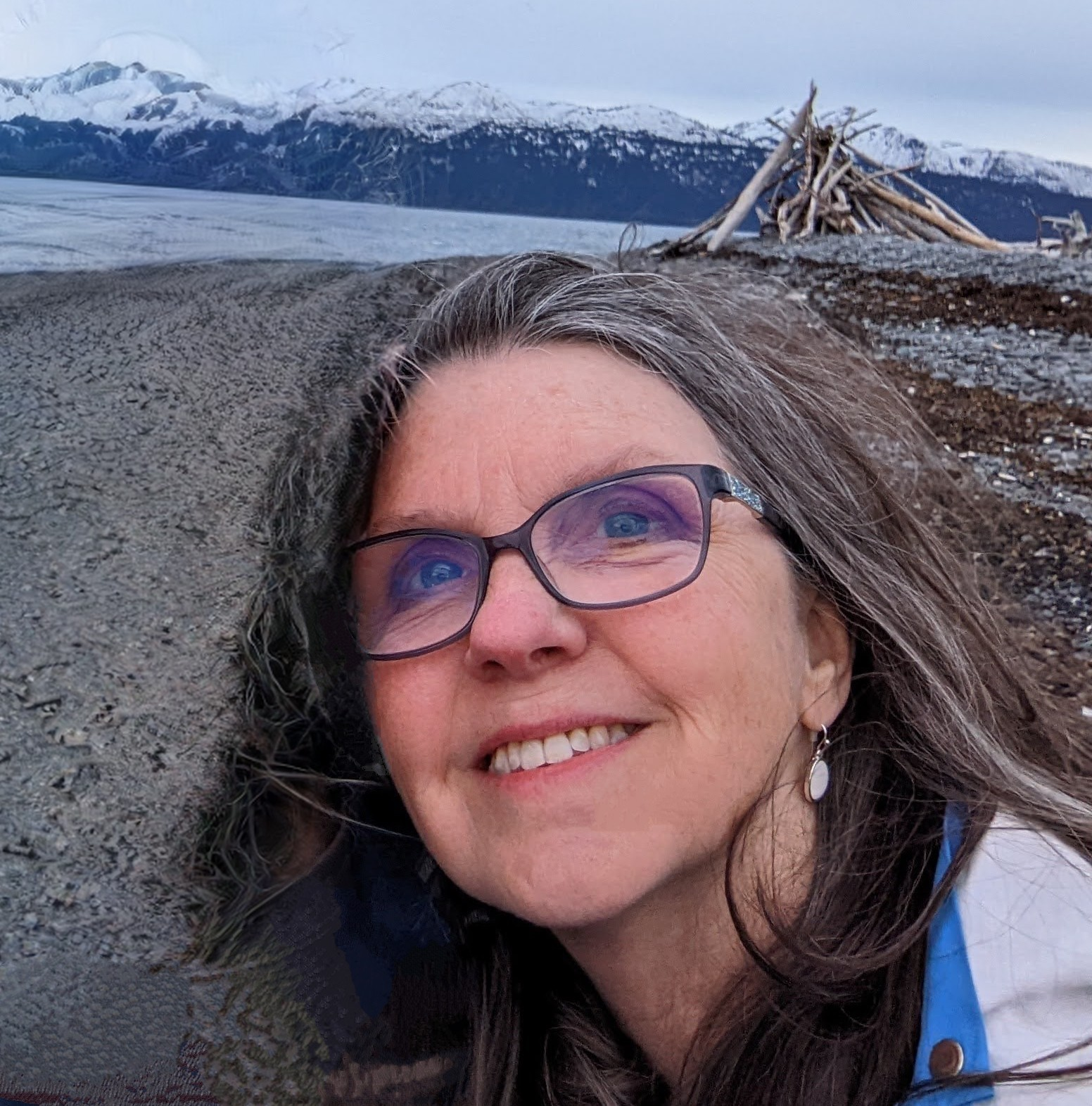
Lisa L. Schwarzburg, PhD, M.S., University of Alaska Anchorage (UAA) Assistant Professor of Health Sciences, specializes in circumpolar, environmental and Alaska Native health research—teaching undergraduate courses in environmental health; global health; social and cultural determinants of health; and the capstone course in health policy. With a background in medical anthropology and health policy, her work concentrates on facilitating community-based decisions on environment, food ways and birth ways, while looking for connections within and between communities, exploring assets, social determinants of health, and health disparities. She has been involved in community-based assessments and studies from her doctoral work on transport for delivery in the Maniilaq Service area of Northwest Alaska, to her more recent work facilitating Maternal Health Community Advisory Board activities, concentrated in Southwest and Aleutian areas of the state; along with assessment efforts for the State-sponsored project supporting culturally-matched and trauma-informed Doula Training Program geared toward improving maternal health among Alaska’s underserved populations. She is grateful for the opportunity to serve on the ALPHA board, and looks forward to working on the policy committee and other areas where she can help foster more undergraduate and graduate students into ALPHA--and hopes to provide assistance to other areas of promoting Healthy Alaskans where needed. Lauren Kelsey, MPH, Director Term Expires: 2029
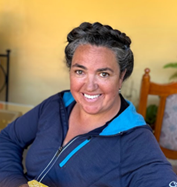
Crystal Cooper, Student Representative
Term Expires: 2027
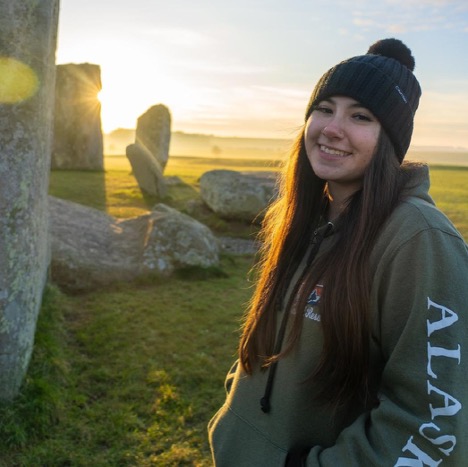 Crystal Cooper has earned her Associates degree in Environmental Public Health (EPH) from Alaska Pacific University and continues to further her education at Alaska Pacific University as a Bachelor of Science EPH student. She is Dena’ina Athabaskan and Aleut from Tyonek, Alaska. Crystal interned with Zender Environmental in the summer of 2025 focusing on community outreach. Through this work and National Tribal Toxics Council (NTTC), she traveled to Nebraska and met with an EPA representative and members of the Santee Sioux Nation Tribal Council to discuss hazardous waste management and water quality. Crystal enjoys volunteering at local animal shelters, and her career aspirations include graduating and continuing to work with tribal communities to improve and protect their environmental health.
|
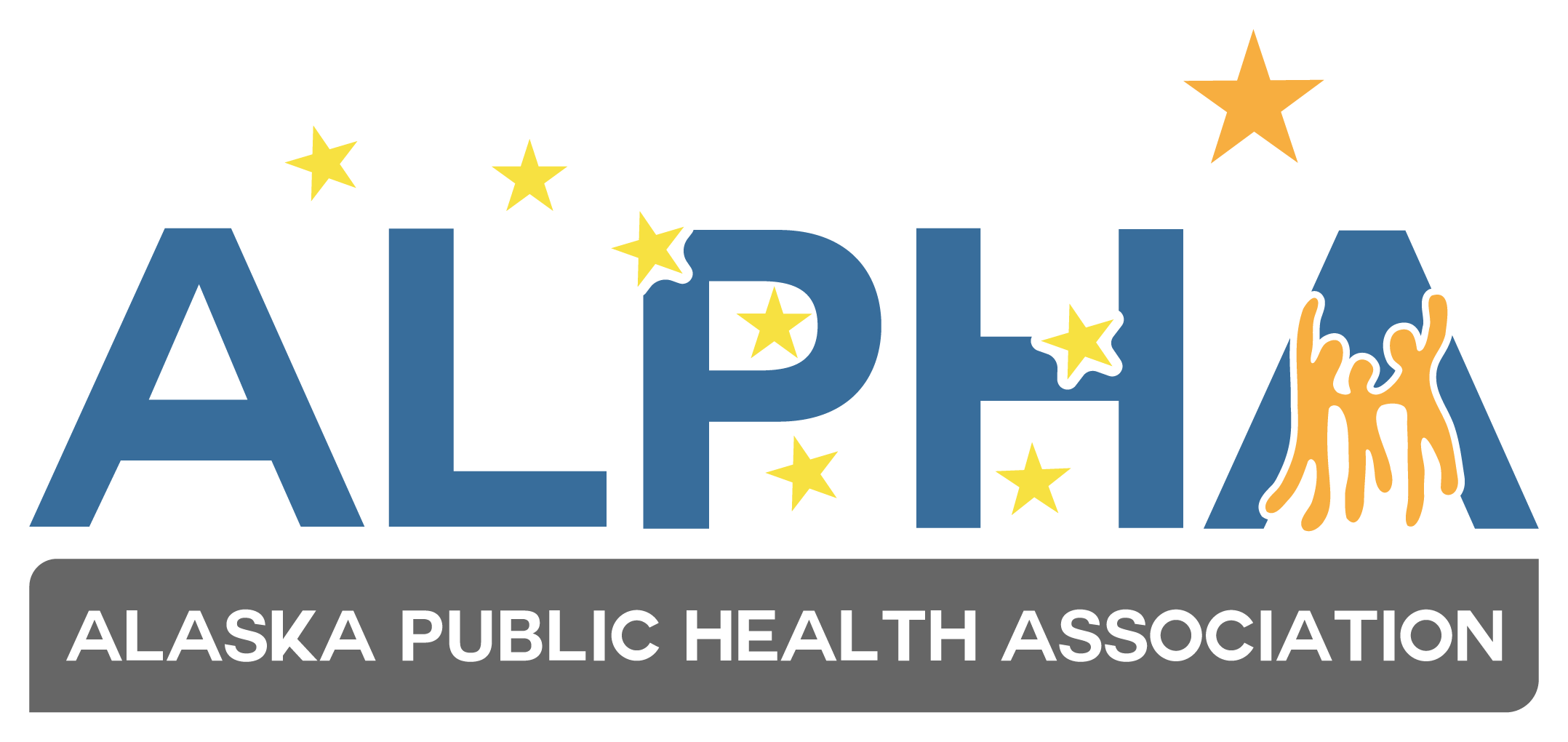
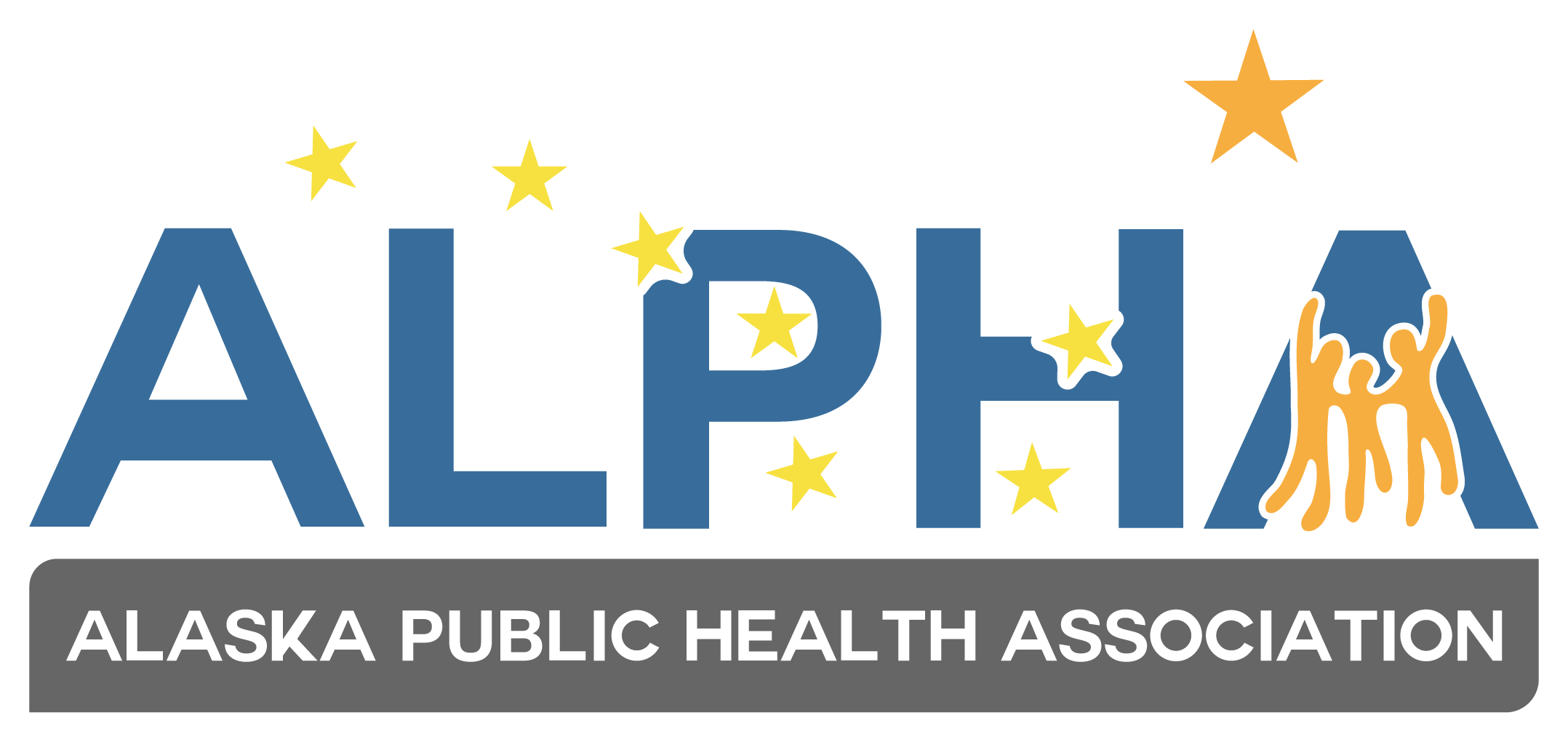
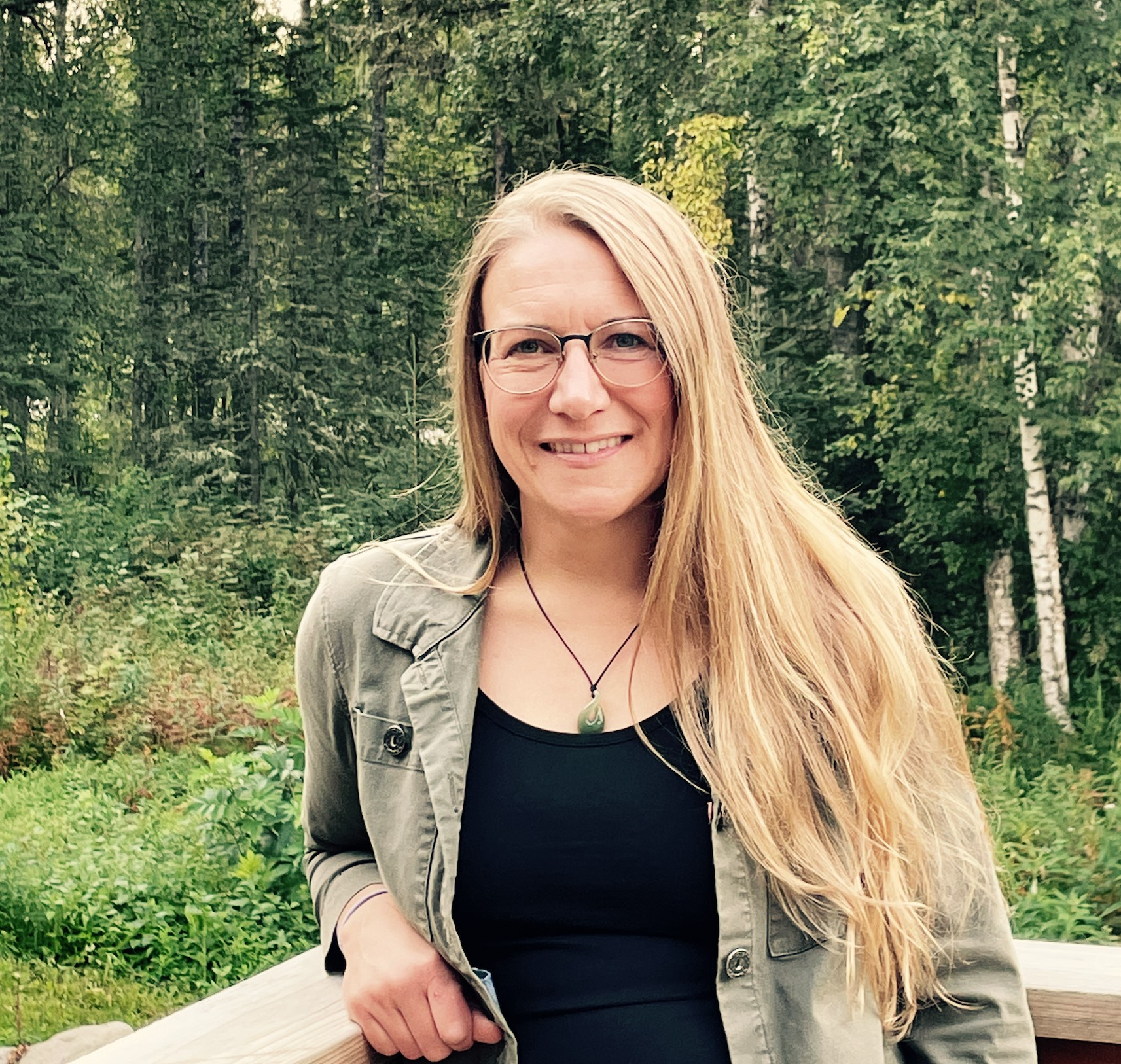
 Julie Cleaton grew up outside of Atlanta, went to Arizona State University for anthropology and genetics, and transitioned into public health after seeing how the healthcare system is not enough to keep people healthy. She got her Master’s in Public Health at Georgia State University while working as a graduate research and teaching assistant in infectious diseases. Next she became a rabies epidemiologist at the Centers for Disease Control and Prevention, managing the transition to electronic laboratory reporting surveillance and evaluating potential improvements to dog vaccination campaign methods. She fell for Alaska while dog sledding with a colleague in Fairbanks and moved to Anchorage as soon as she could in 2019, starting as an epidemiologist and later becoming the dementia program manager at the Alaska section of Chronic Disease Prevention and Health Promotion. There she has supported the implementation and evaluation of evidence-based clinical and community programs to prevent and treat chronic conditions. She lives near Wasilla with her partner, three dogs, and many struggling plants.
Julie Cleaton grew up outside of Atlanta, went to Arizona State University for anthropology and genetics, and transitioned into public health after seeing how the healthcare system is not enough to keep people healthy. She got her Master’s in Public Health at Georgia State University while working as a graduate research and teaching assistant in infectious diseases. Next she became a rabies epidemiologist at the Centers for Disease Control and Prevention, managing the transition to electronic laboratory reporting surveillance and evaluating potential improvements to dog vaccination campaign methods. She fell for Alaska while dog sledding with a colleague in Fairbanks and moved to Anchorage as soon as she could in 2019, starting as an epidemiologist and later becoming the dementia program manager at the Alaska section of Chronic Disease Prevention and Health Promotion. There she has supported the implementation and evaluation of evidence-based clinical and community programs to prevent and treat chronic conditions. She lives near Wasilla with her partner, three dogs, and many struggling plants.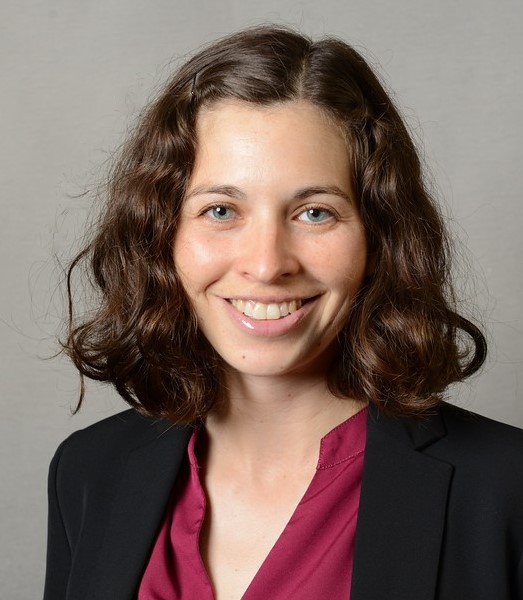
 Juliana (Jewelz) Stephan served previously as a program manager for Alaska Native Medical Center’s Child and Family Developmental Services clinic. She assisted with creating policies and procedures for the launch of the new clinic where she oversaw 40-plus staff and provided administrative and operations support. During that time, she is also a LEND (Leadership Education in Neurodevelopmental and related Disabilities) alumni, where she was able to look at disability experiences and services through a public health lens. Ms. Stephan has a passion for addressing childhood development and worked previously as the SCF RAISE program supervisor to lead a development team to plan, assess, and implement case management for Alaska Native Youth. Currently, Ms. Stephan applies her knowledge of tribal public health and public health administration in her current position as a director at the All Alaska Pediatric Partnership, where she works to connect public policy with pediatric care needs. Ms. Stephan is a board member and current President of the Programs for Infants and Children board, and a previous board member of the Pacific Northwest Chapter of the Society of Public Health Education. Ms. Stephan received her B.S. in Community Health from Portland State University, and her Master’s in Public Health from the University of Alaska Anchorage.
Juliana (Jewelz) Stephan served previously as a program manager for Alaska Native Medical Center’s Child and Family Developmental Services clinic. She assisted with creating policies and procedures for the launch of the new clinic where she oversaw 40-plus staff and provided administrative and operations support. During that time, she is also a LEND (Leadership Education in Neurodevelopmental and related Disabilities) alumni, where she was able to look at disability experiences and services through a public health lens. Ms. Stephan has a passion for addressing childhood development and worked previously as the SCF RAISE program supervisor to lead a development team to plan, assess, and implement case management for Alaska Native Youth. Currently, Ms. Stephan applies her knowledge of tribal public health and public health administration in her current position as a director at the All Alaska Pediatric Partnership, where she works to connect public policy with pediatric care needs. Ms. Stephan is a board member and current President of the Programs for Infants and Children board, and a previous board member of the Pacific Northwest Chapter of the Society of Public Health Education. Ms. Stephan received her B.S. in Community Health from Portland State University, and her Master’s in Public Health from the University of Alaska Anchorage.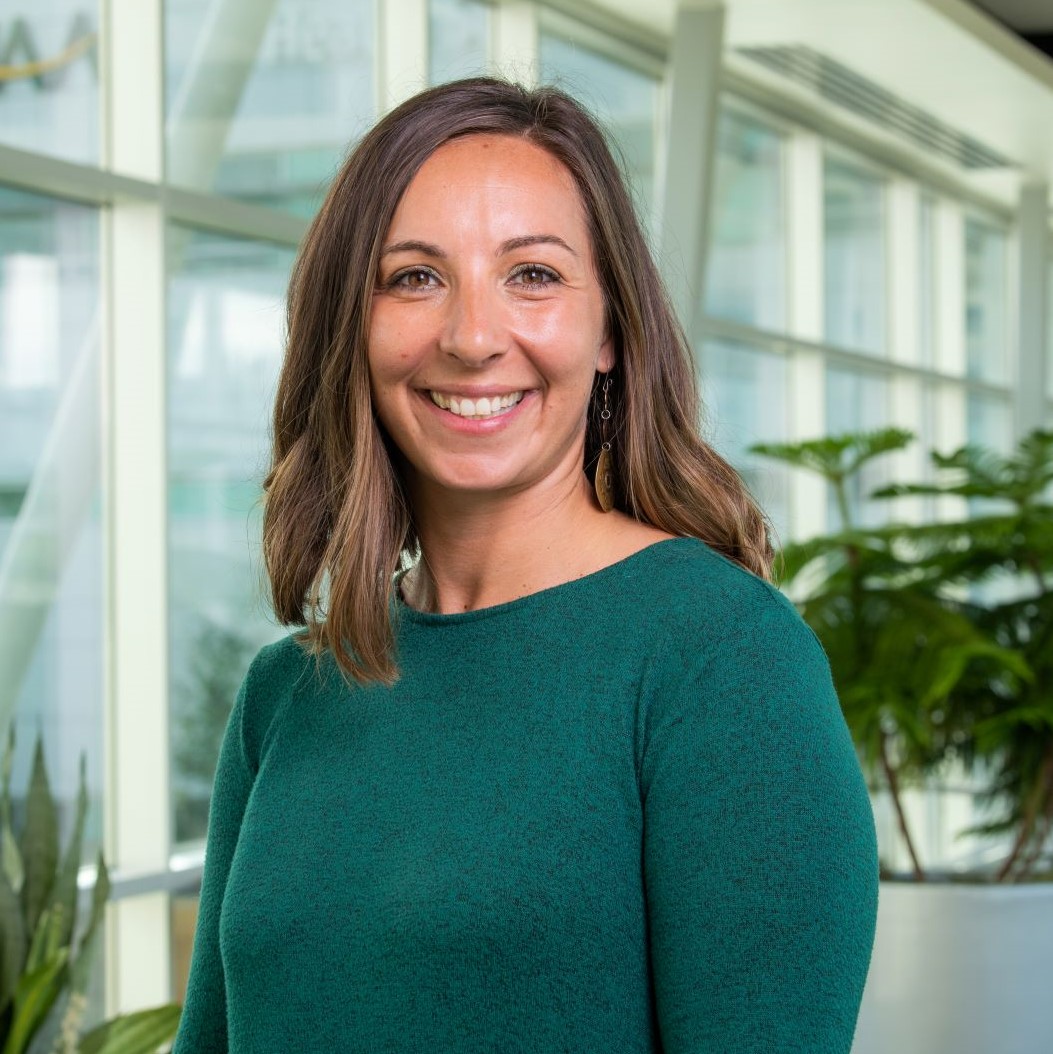 Gloria Burnett is the Director of the Alaska Center for Rural Health and Health Workforce and Alaska's AHEC Program. The Center is located at the University of Alaska Anchorage and is composed of a Program Office and 6 regional AHEC Centers located across the State. Gloria has over 14 years of experience in healthcare workforce development, youth career pathway programming and health continuing education. Prior to her current position, Gloria served as the Dean of Students at Ilisagvik College, Alaska’s only tribal college.
Gloria Burnett is the Director of the Alaska Center for Rural Health and Health Workforce and Alaska's AHEC Program. The Center is located at the University of Alaska Anchorage and is composed of a Program Office and 6 regional AHEC Centers located across the State. Gloria has over 14 years of experience in healthcare workforce development, youth career pathway programming and health continuing education. Prior to her current position, Gloria served as the Dean of Students at Ilisagvik College, Alaska’s only tribal college.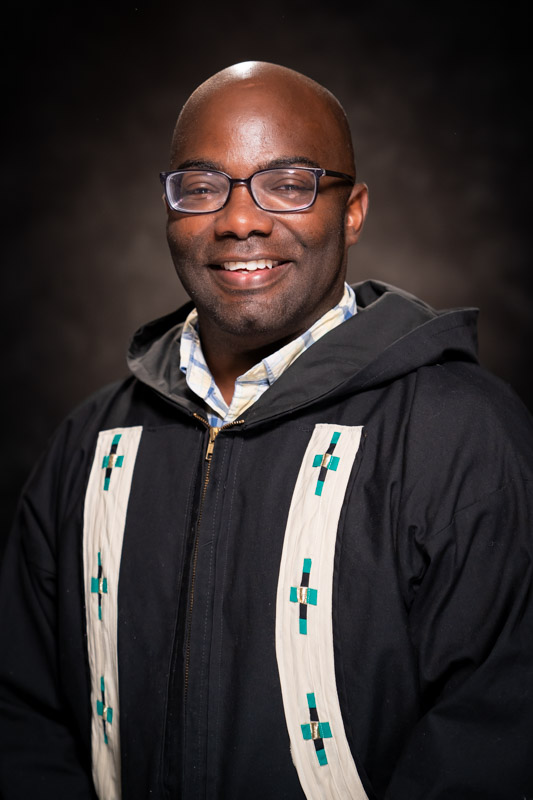 Mr. Jason Johnson Sr. is the Family and Workforce Services Division Director for Tanana Chiefs Conference and has extensive experience working in the fields of Tribal Public Health for the Alaska Tribal Health System. Mr. Johnson is leading TCC's early education and workforce development initiatives to create youth career pathways for the Summer Youth Employment program with both village and city-based leaders. Mr. Johnson also works with other tribal leaders toward enhancing tribal governments’ sovereignty to meet the health and social service needs of TCC by creating healthy, strong, and unified tribes. Mr. Johnson also has worked in the most remote communities including the TCC and Maniilaq (Northwest Arctic) regions to advance communities’ readiness to address weather, travel, emergency services, substance misuse and suicide prevention, tobacco prevention, and especially injury prevention priorities of drowning and transportation safety. Mr. Johnson graduated with honors from the University of Alaska Fairbanks with a B.A. in Social Work and is a UAF TriO and Honors Program alumnus.
Mr. Jason Johnson Sr. is the Family and Workforce Services Division Director for Tanana Chiefs Conference and has extensive experience working in the fields of Tribal Public Health for the Alaska Tribal Health System. Mr. Johnson is leading TCC's early education and workforce development initiatives to create youth career pathways for the Summer Youth Employment program with both village and city-based leaders. Mr. Johnson also works with other tribal leaders toward enhancing tribal governments’ sovereignty to meet the health and social service needs of TCC by creating healthy, strong, and unified tribes. Mr. Johnson also has worked in the most remote communities including the TCC and Maniilaq (Northwest Arctic) regions to advance communities’ readiness to address weather, travel, emergency services, substance misuse and suicide prevention, tobacco prevention, and especially injury prevention priorities of drowning and transportation safety. Mr. Johnson graduated with honors from the University of Alaska Fairbanks with a B.A. in Social Work and is a UAF TriO and Honors Program alumnus.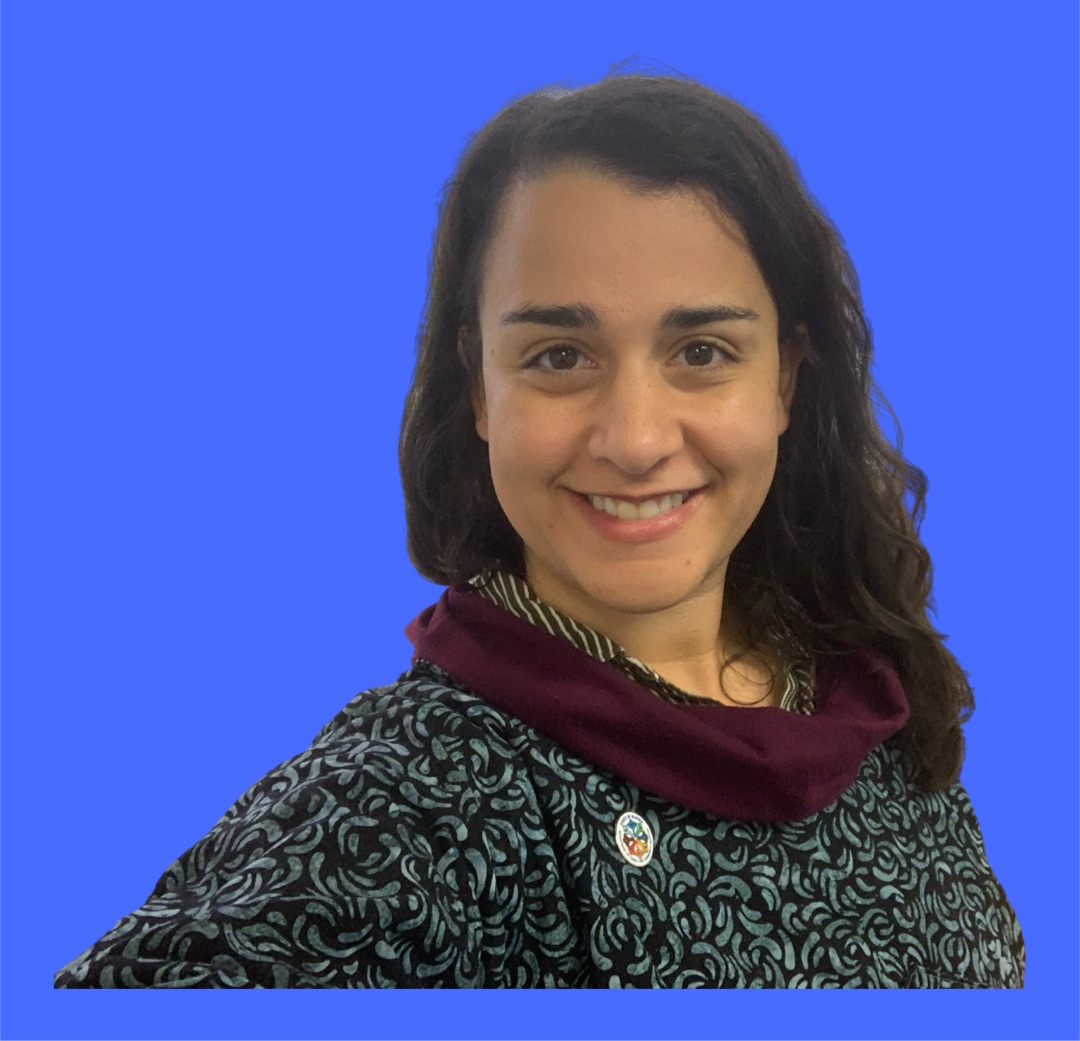 Mariah Seater, born and raised in Alaska, serves as a Special Assistant to the Commissioner of Alaska Department of Family and Community Services focusing on policy and equity projects. She received her BS in kinesiology and MS in educational psychology from University of Nevada-Las Vegas, and MPH degree from UAA after returning to Alaska. With a focus on health equity and disability advocacy, she currently serves as a board member and the Vice President of Stone Soup Group (a non-profit with the mission of supporting Alaskan families who care for children with special needs), is the former President for the Alaska chapter of American Academy of Developmental Medicine and Dentistry (AADMD) and is a former LEND Fellow through UAA’s Center for Human Development where her research focus was examining the co-occurrence of Fetal Alcohol Spectrum Disorders (FASD) and trauma. In previous professional roles, she has worked in special education, health equity and communications, non-profit program development, and academic research. Currently, she is pursuing a Doctor of Public Health (DrPH) degree with a focus in Leadership, Advocacy and Equity from Tulane University. Outside of professional pursuits, she enjoys exploring nature with her family and learning American Sign Language (ASL).
Mariah Seater, born and raised in Alaska, serves as a Special Assistant to the Commissioner of Alaska Department of Family and Community Services focusing on policy and equity projects. She received her BS in kinesiology and MS in educational psychology from University of Nevada-Las Vegas, and MPH degree from UAA after returning to Alaska. With a focus on health equity and disability advocacy, she currently serves as a board member and the Vice President of Stone Soup Group (a non-profit with the mission of supporting Alaskan families who care for children with special needs), is the former President for the Alaska chapter of American Academy of Developmental Medicine and Dentistry (AADMD) and is a former LEND Fellow through UAA’s Center for Human Development where her research focus was examining the co-occurrence of Fetal Alcohol Spectrum Disorders (FASD) and trauma. In previous professional roles, she has worked in special education, health equity and communications, non-profit program development, and academic research. Currently, she is pursuing a Doctor of Public Health (DrPH) degree with a focus in Leadership, Advocacy and Equity from Tulane University. Outside of professional pursuits, she enjoys exploring nature with her family and learning American Sign Language (ASL).